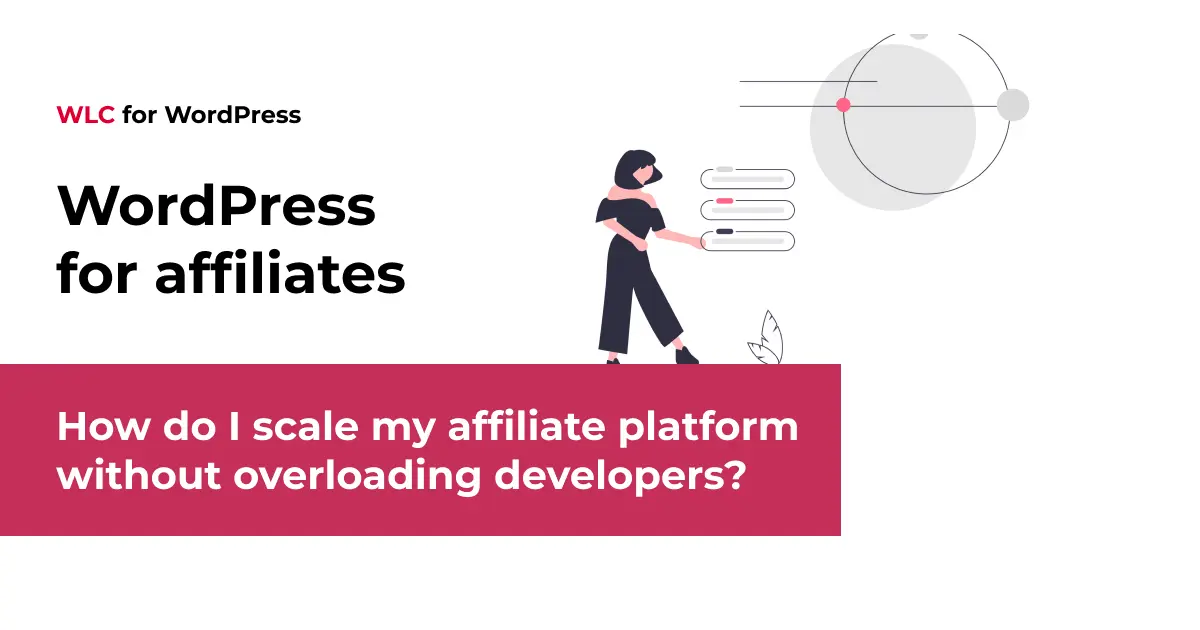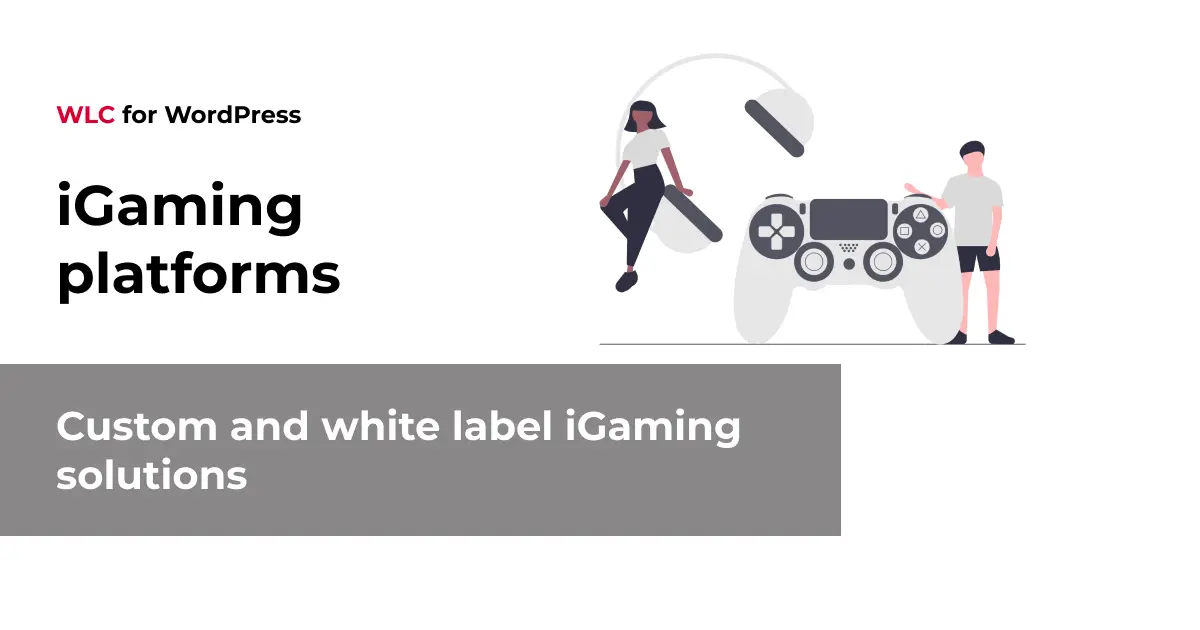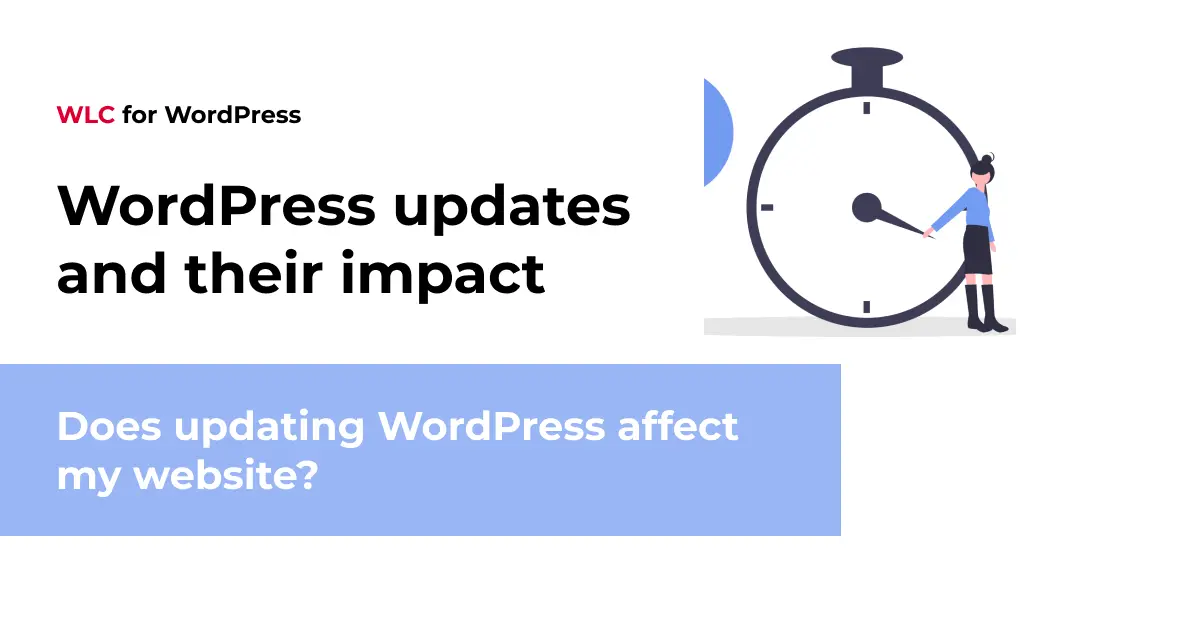Category: WordPress
How do I scale my affiliate platform without overloading developers?

Scaling your affiliate platform without overloading developers means implementing systems that allow marketing teams to work independently while maintaining technical performance. You achieve this through automated content management, centralized databases, and self-service tools that reduce development dependencies. Modern affiliate platform scaling focuses on architecture that grows with your business rather than creating more work for your technical team.
What does it actually mean to scale an affiliate platform without overloading developers?
Scaling without developer overload means creating systems where your marketing team can launch campaigns, update content, and manage affiliate relationships independently. Instead of every bonus update or landing page requiring technical support, you build infrastructure that handles growth automatically.
Traditional affiliate marketing creates constant bottlenecks because developers become involved in routine tasks. Every new casino promotion, odds update, or seasonal campaign turns into a development ticket. This approach doesn’t scale because your technical team becomes a limiting factor rather than focusing on platform improvements and innovation.
Successful scaling looks completely different. Your content teams can create new landing pages in minutes using pre-built components. Bonus information updates automatically across all relevant pages. Performance remains strong even as traffic grows because the architecture handles increased load without manual intervention.
The key difference is building systems that work for you rather than requiring constant maintenance. When done properly, adding new operators or launching in new markets becomes a content task rather than a development project.
Why do affiliate platforms create so much work for development teams?
Affiliate platforms burden developers because they typically rely on custom solutions for every content update and integration. Each landing page, bonus change, or operator addition requires technical implementation rather than using standardized systems that marketing teams can manage independently.
The biggest culprit is fragmented data management. When bonus information, operator details, and content live in separate systems, every update becomes a manual process. Your developers spend time copying data between platforms instead of building features that improve your competitive position.
Landing page requests create another major bottleneck. Traditional approaches require developers to code each new page from scratch or modify existing templates. This process takes hours or days when it should take minutes. The delay means missed opportunities and frustrated marketing teams.
Integration maintenance adds ongoing pressure. APIs change, third-party services update their requirements, and data feeds need constant monitoring. Without proper architecture, these routine maintenance tasks consume development resources that could be spent on platform improvements.
Performance optimization becomes an endless cycle when the underlying architecture isn’t built for scale. Developers spend time fixing slow pages and database queries instead of preventing these issues through better system design.
How can you automate content updates without involving developers?
Content automation works through centralized databases that feed information to all your pages automatically. When you update a casino bonus or operator rating in one place, the change appears everywhere that information is displayed without manual intervention or technical support.
The foundation is a unified data center that stores all your affiliate information. Instead of managing spreadsheets or updating individual pages, your content team works with a single source of truth. This system connects to your website architecture and pushes updates instantly.
Self-service page builders transform how marketing teams work. Using pre-designed components and templates, they can create new landing pages without understanding code. These tools ensure consistency while giving content teams the flexibility to respond quickly to market opportunities.
Automated content management systems handle routine tasks like updating odds, refreshing promotional content, and managing seasonal campaigns. You set rules for how content should behave, and the system executes without ongoing supervision.
API integrations can pull fresh data from operators and affiliate networks automatically. Instead of manually checking for bonus updates or new promotions, your platform stays current without human intervention. This approach eliminates the delays and errors that come with manual data management.
What’s the difference between traditional development approaches and scalable affiliate architecture?
Traditional approaches treat each feature as a custom project requiring individual development work. Scalable architecture uses modern frameworks and standardized components that reduce technical debt while enabling non-technical teams to create and manage content independently.
Legacy systems typically involve custom-coded solutions for every requirement. Need a new landing page layout? That’s a development project. Want to add a comparison table? Another ticket for the technical team. This approach creates dependencies that slow down your entire operation.
Modern affiliate architecture leverages frameworks like WordPress with advanced customization capabilities. These systems provide standardized building blocks that marketing teams can combine in different ways. The underlying code remains clean and maintainable while offering flexibility for content creation.
Scalable systems separate content from presentation logic. Your data lives in centralized locations while your design components can display that information in various formats. This separation means updating content doesn’t require touching code, and design changes don’t risk breaking data connections.
Performance optimization becomes built-in rather than an ongoing battle. Server-side rendering, advanced caching, and optimized hosting infrastructure handle traffic spikes automatically. Your developers can focus on new features instead of constantly firefighting performance issues.
The maintenance burden drops significantly because modern frameworks follow established patterns and best practices. Updates happen through standard processes rather than custom modifications that might break other parts of your platform.
How do you choose the right tools and systems for developer-independent scaling?
Choose platforms that offer robust content management capabilities alongside technical performance. Look for systems that provide pre-built components for affiliate marketing while maintaining the flexibility to customize as your business grows and requirements evolve.
Evaluate content management systems based on how easily your marketing team can work independently. The best platforms offer visual page builders with affiliate-specific components like comparison tables, bonus displays, and operator profiles. Your team should be able to create professional pages without technical knowledge.
Consider the integration ecosystem when selecting tools. Your platform needs to connect with affiliate networks, payment processors, analytics tools, and third-party data sources. Choose systems with established APIs and plugin architectures that simplify these connections.
Performance capabilities matter just as much as ease of use. Your chosen platform should handle high traffic volumes, provide fast loading times, and support SEO requirements without additional development work. Look for built-in caching, CDN integration, and mobile optimization.
Think about long-term maintenance and updates. Platforms with active development communities and regular updates reduce the ongoing technical burden. You want systems that improve over time rather than becoming legacy problems that require custom maintenance.
Test the learning curve for your content teams. The most powerful platform won’t help if your marketing team can’t use it effectively. Choose tools that balance capability with usability, ensuring your team can become productive quickly.
When you’re ready to implement affiliate platform scaling that truly reduces developer dependencies while improving performance, working with an experienced development partner can help you create these exact solutions. The right approach combines technical excellence with practical usability, ensuring your team can focus on growing your business rather than managing technical limitations through strategic outsourcing solutions.






